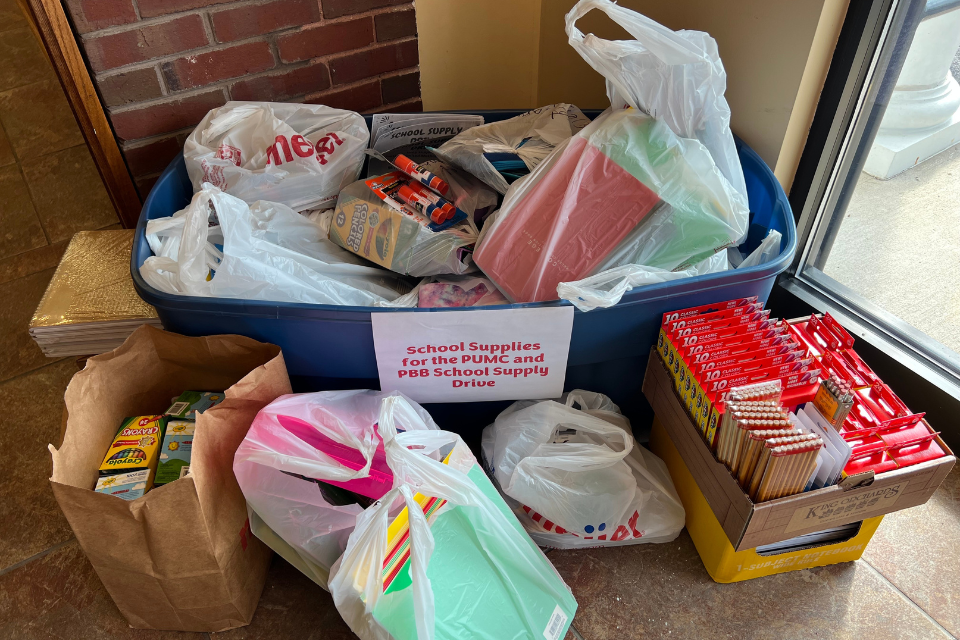The Rev. Dwayne Bagley encourages churches to engage their local schools by first asking them these two questions: “What do you need?” and “How can we help?”
DWAYNE BAGLEY
Superintendent, Greater Southwest District
One of the best things your local church can do is to connect with the public school in your area. The Michigan Annual Conference is extending this invitation to your church through the Readers to Leaders campaign we approved at the 2022 Annual Conference. In addition to asking local congregations to partner in raising $500,000 for school children in Liberia and kids across Michigan, churches are being asked to create their own ministry relationship with a school in their community.
Though many congregations have already done this, I think all churches should consider the opportunities ministry with your local school offers. This is especially true in churches where people are seeking new ways to connect with families and children. And, even if your church already does something with your local school, October is a great time to explore what more you could do.
October is a key time to connect because, by this time, the beginning of the school year is behind administrators, teachers, and students. Teachers have gotten to know students, and those who could benefit from additional help have been noticed. Gaps in staffing have emerged, and educators are beginning to identify those things they used to do and could do again if they only had some volunteers step forward. In the next few weeks, your church could take the first step toward making a difference for children and youth in your community simply by approaching the teachers, staff, or administrators at your local school and asking these two questions: “What do you need?” and “How can we help?”
These questions are the right ones to ask if you want to partner with your local school. Too often, church people make the approach only after they have already decided what they want to do. While this is well-intentioned, your good idea might not connect with the most pressing need at the school. You might have invested significant time and energy into designing a weekend backpack food program when the school really needs playground monitors. Or your governance board, after debating and planning for months, voted to approve a Kid’s Hope USA program only to find out that the school principal had been praying for someone to restart the school’s chess club. So, before you begin to dream about and plan what you want to do to support children and their education, ask the questions.
Another question may be on your mind if you’ve managed to read this far: “Why should churches engage schools?” These initiatives will not likely increase your Sunday morning worship attendance or add giving units to the annual pledge campaign. And since they require significant investments of time and sometimes financial and other resources, someone in your church is going to ask this question: “Why are we doing this?”
When that happens, you can say that partnering with your local school to provide kids with what they need is a great way to show parents that your church cares about the same things they care about. Imagine what might happen if your church earned the reputation of being the group of people who cared about children in your community. On a smaller scale, but one that may have a far more significant ripple effect, partnering with your local school can give people in your church an opportunity to make a difference in a child’s life. The Search Institute and other organizations have studied how having an adult who cares about them can transform a child in life-changing ways. Almost every person in your church can be that adult.
Now’s the time to approach a teacher you know, the local school principal, the band director, or the school social worker with those two important questions: “What do you need?” and “How can we help?” Your church can’t do everything, but every church can do something, and many churches can do more. My prayer is that every congregation will be encouraged to take the first step or perhaps the next step when they perceive all the good they may do.
Last Updated on October 18, 2022

